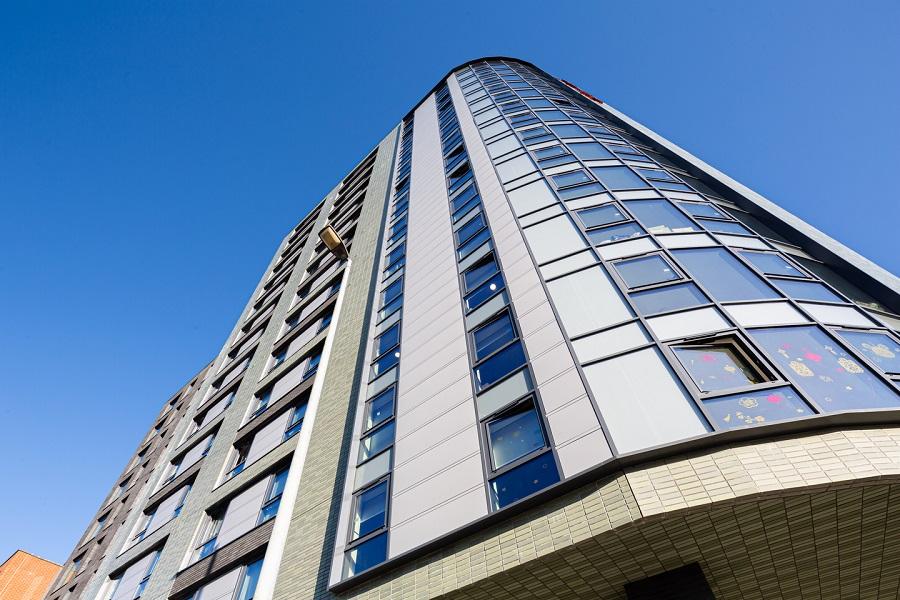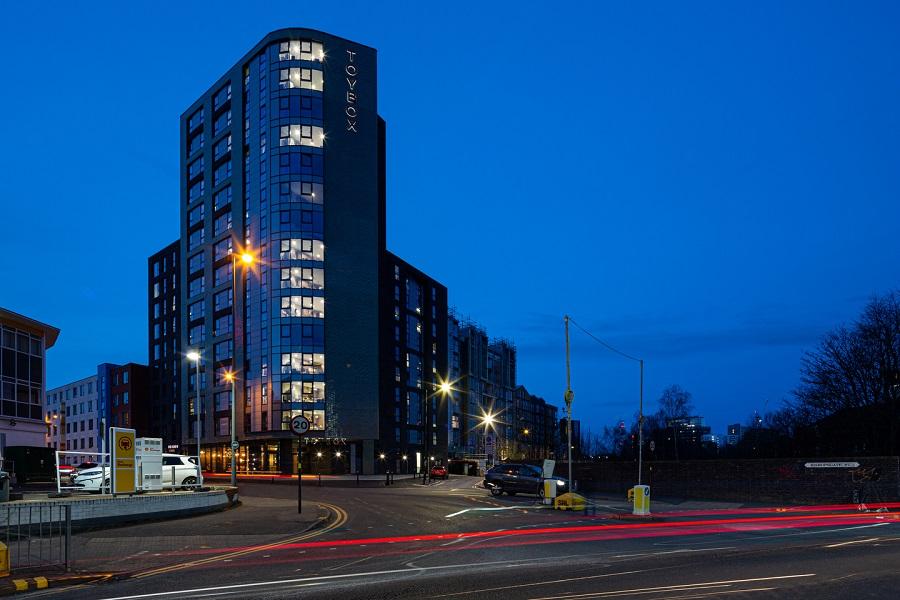A study in fenestration design
Over the last few years, the demand for high-quality student accommodation has soared with many purpose-built schemes being delivering to serve the UK’s eclectic mix of colleges and universities. Andrew Cooper, national specification manager for Senior Architectural Systems takes a closer look at how aluminium fenestration systems are helping specifiers make the grade in this vibrant sector.
For many students, university will be their first taste of living alone and so offering a safe and secure environment that offers peace of mind is essential. The intrinsic strength of aluminium frame windows and doors provides increased security and the best quality products, like those offered by Senior Architectural Systems, are fully tested to PAS 24 and Secured By Design, and achieve compliance with Approved Document Q.
As many student accommodation schemes feature multiple storeys with windows at varying heights, it’s important to reduce the risk of falls and this important safety issue must be addressed at the initial design stage. The use of window restrictors can provide protection from falls but still allow windows to be opened for ventilation.

Additionally, the installation of external mesh panels, used in conjunction with opening-in windows, can improve safety. These panels can also incorporate bespoke and aesthetically pleasing design details, bringing another dimension to the architectural impact of the building façade.
Future-proofing façades
The very nature of student residences means that maintenance requirements are a top priority and it is vital that the building envelope is built to last.
As well as its aesthetic appeal, aluminium significantly outperforms other types of framing material in terms of its durability. Hard-wearing and robust, aluminium fenestration systems can not only help to reduce cyclical maintenance costs but can also make a positive contribution to managing the overall lifecycle costs of the building.
Although student rooms are generally seen as temporary abodes and so follow a different design code to other residential schemes, daylighting is still important. The slim sightlines offered by aluminium windows help create bright and comfortable interiors, maximising the flow of light into bedrooms that are often used as both living and study areas. Similarly, the use of aluminium frame doors and curtain walling is an effective way to open up entrances and communal areas.
As well as looking good from the outside, it’s vital to create a comfortable and pleasant internal environment that is cost-effective to maintain. With many new student accommodation schemes aspiring to achieve top BREEAM targets, the specification of low U-value glazing systems can help to create comfortable interior temperatures and reduce heating costs for the tenants. Thermally-efficient systems can also significantly reduce the risk of condensation build up which is a common problem in this sector owing to students drying laundry indoors and communal kitchen and bathrooms being frequently used.
Senior’s patented PURe® aluminium windows and doors are ideally suited to meet the specific requirements of this sector and have been specified on a number of high-profile schemes.

A sound choice
An added benefit of the PURe® aluminium system is that it can also offer improved acoustic performance.
To attract students, location is everything and schemes that benefit from central and convenient locations, close to campus, transport links, shops and of course pubs, will always be more popular. The acoustic performance of the building envelope is vitally important, particularly for schemes that are located in a prime city centre location like the recently completed Toy Box scheme in Birmingham, where there is an even greater need to ensure external noise doesn’t disturb the students and any noise breakout from within is minimised.
The new generation of luxury residences is a far cry from the days of dark, damp and gloomy student digs and the extensive use of aluminium glazing systems has become a key feature of their design.
